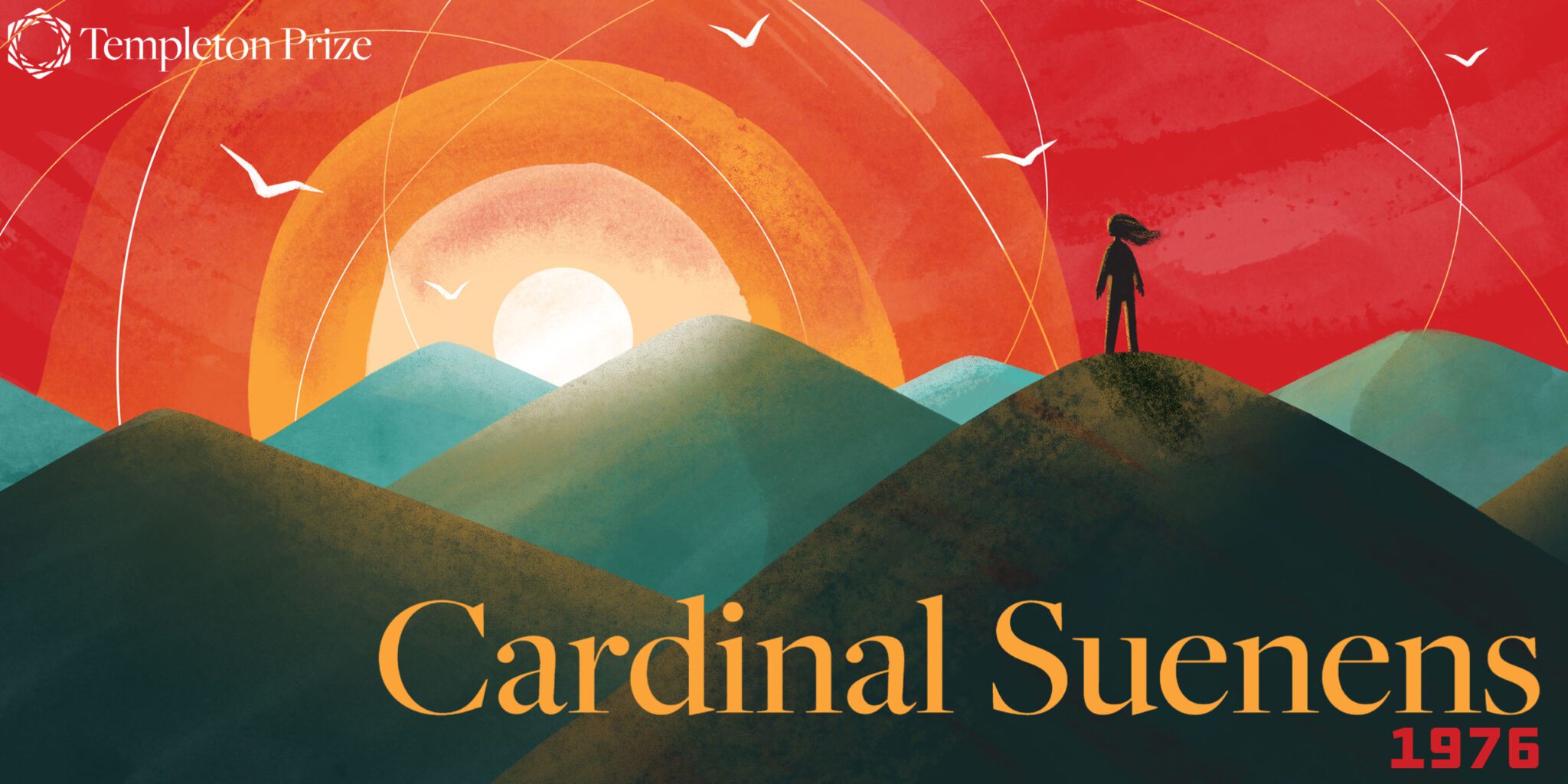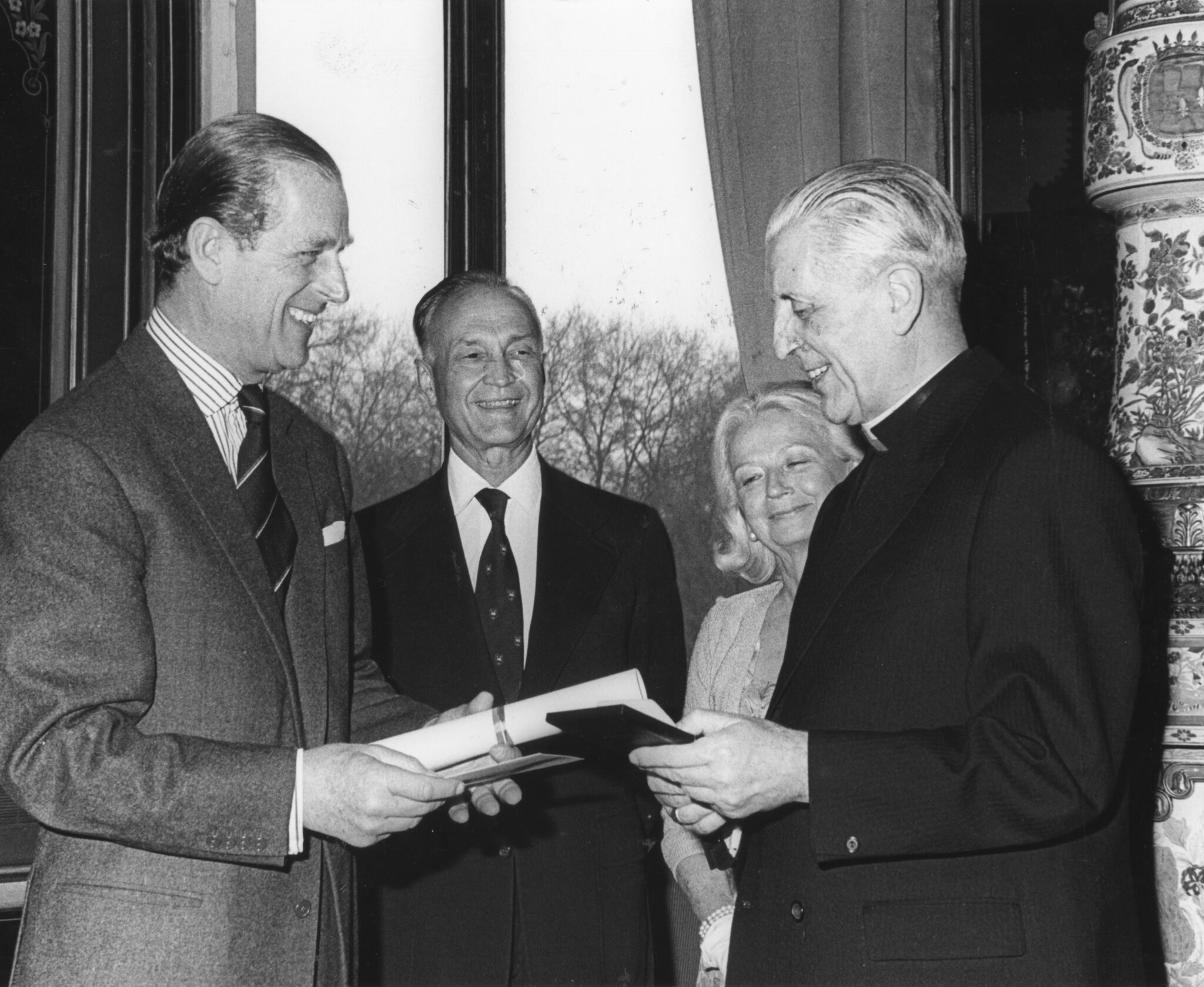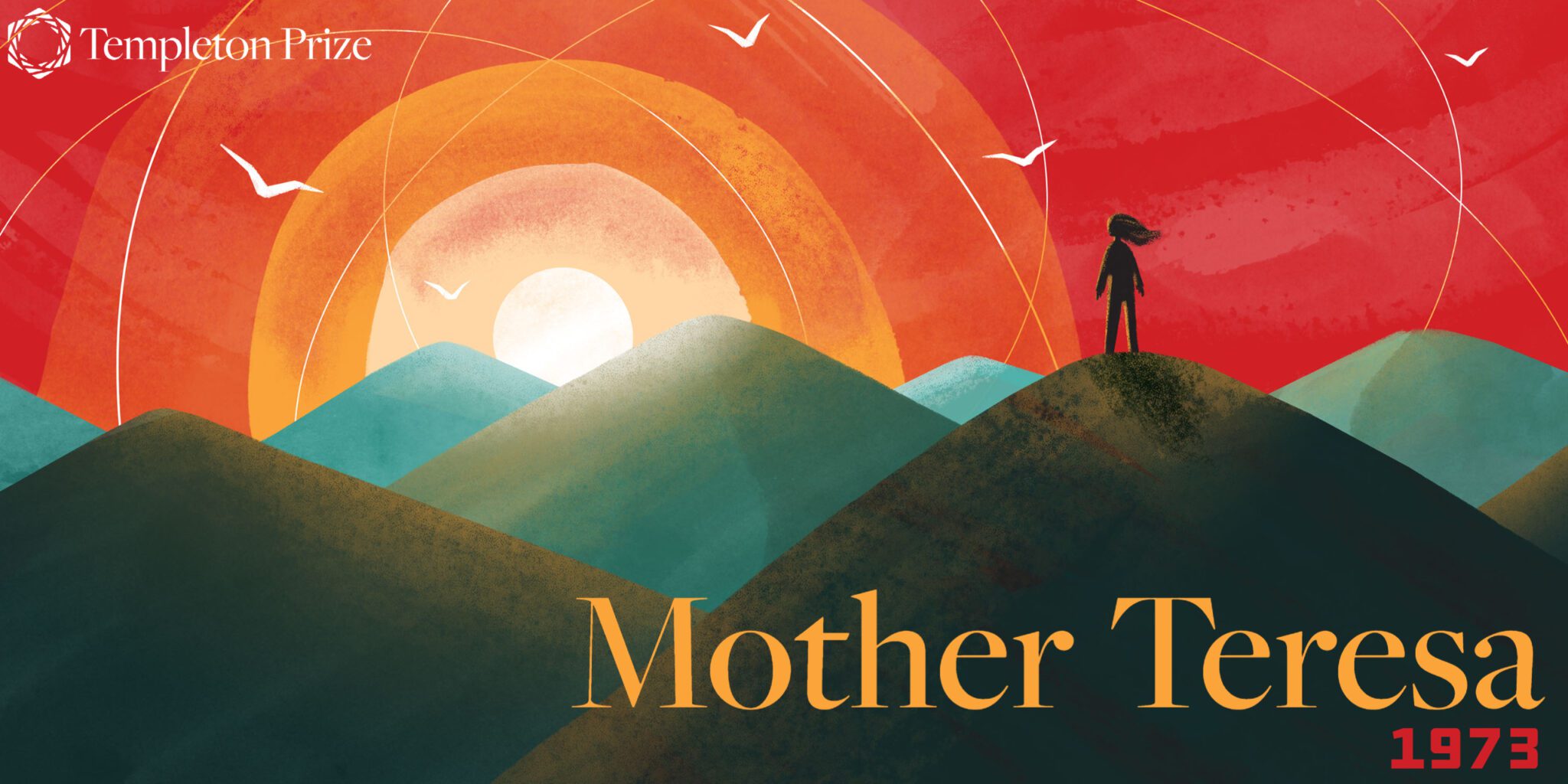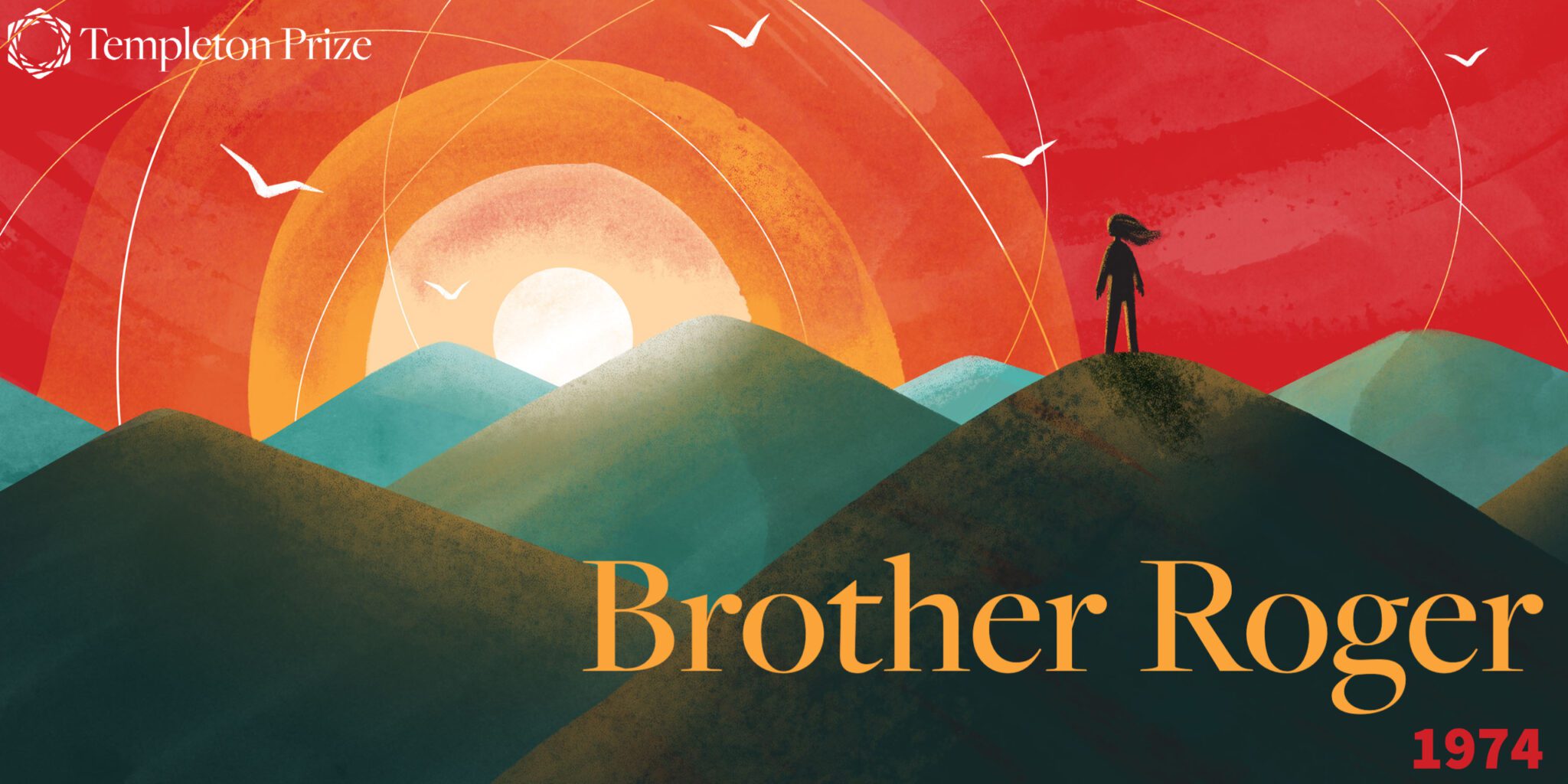In 1973, the first Templeton Prize was given to Mother Teresa. In 2023, we celebrate the 50th anniversary of this award. Over the next 52 weeks, we will highlight each of our laureates and reflect on their impact on the world. From humanitarians and saints to philosophers, theoretical physicists, and one king, the Templeton Prize has honored extraordinary people. Together, they have pushed the boundaries of our understanding of the deepest questions of the universe and humankind’s place and purpose within it, making this (we humbly think) the world’s most interesting prize.
Cardinal Leo Jozef Suenens was the Archbishop of Mechelen-Brussels, Belgium and a pioneering voice of the Catholic Charismatic Renewal Movement.
Born in 1904 and raised in Belgium by his mother and priest-uncle after losing his father at age 4, wealthy relatives encouraged Suenens to study economics and manage their fortune. He chose the priesthood. At age 23, Suenens obtained a doctorate in theology and in philosophy at Pontifical Gregorian University in Rome. He later received a master’s degree in canon law. Mentored by His Eminence Désiré-Joseph Mercier, who was known for his unfaltering resistance to the German occupation of Belgium in 1914-1918 during the Great War, Suenens’ contrarian yet compassionate observations often challenged tradition in the Catholic church.
Suenens is credited with a number of accomplishments in modernizing the Catholic church. In addition to his advocacy for shifting service from Latin to the local language, Suenens is known for his work to engage non-ordained members of the church with larger roles and his encouragement of interfaith dialogue and religious liberty. Beginning his career as a seminary professor, he served as the vice rector of Louvain University during World War II. Suenens evaded, and sometimes directly challenged, the German occupation, like his mentor Désiré-Joseph Mercier. Suenens was named Archbishop of Mechelen-Brussels in 1961 and was made a Cardinal a year later. He retired in 1979 and remained active up until he passed away in 1996 at age 91.
Cardinal Suenens was awarded the 1976 Templeton Prize in recognition of his enlightened discourse related to the Catholic Charismatic Renewal Movement.
His guidance and reassurance about the movement to Pope Paul VI eliminated misunderstanding and offered thoughtful insight to followers and observers alike.
Cardinal Suenens gave his Templeton Prize acceptance speech in Guildhall, London on May 2, 1976. Esteemed guests included Grace the Archbishop Athenagoras of Thyateira, representing His All Holiness Demetrios, one of the judges; Mr. Henri Perdieus of the Belgian Embassy, representing Her Majesty Fabiola, Queen of the Belgians; Mr. Edmund de Rothschild, a judge; and Right Hon. Mrs. Margaret Thatcher, M.P. On the previous day, His Royal Highness Prince Philip presented Cardinal Suenens with the Templeton Prize at Buckingham Palace.
“We need unity between those who are impatient with prayer, contemplation or worship and who think them to be outmoded and who look to the service of God solely in social and political activism and those who turn rather to mysticism, prayer, contemplation, hungry for union with a reality beyond our narrow immediate limits. We need to bring together those two trends of mind, the political as well as the mystical.” – Cardinal Suenens
-

Cardinal Leo Jozef Suenens accepting the award from HRH Prince Philip
At the ceremony, speakers Mr. John M. Templeton and Right Hon. Mrs. Margaret Thatcher, M.P. both highlighted how Cardinal Suenens’ legacy of compassionate disagreement and religious progress contribute to a more truthful, tolerant, and loving world.
“Humility teaches us not to despise any other child of God because he worships God in a different way. Differences are helpful because thereby each of us can learn a little more about God. Not only should we love each other, but also listen to each other. Surely, we can learn from one another. We need not fear to exchange ideas, because if your idea is truth, it will endure. The myriad forms of life on earth now show us that both variety and progress are part of God’s plan.” – Mr. John M. Templeton
“…We can make laws about what people must or must not do and we can exact penal-ties or impose punishments if they do not conform. But no legislation can make people kind, thoughtful or unselfish to one another or to have courage in the face of fear… They have a deeply religious foundation — a faith that believes in the essential dignity and importance of each and every human being and that he has a purpose to fulfill here on earth… Without that religious base, many of the qualities which we take so much for granted, truth, fairness, justice, tolerance, understanding would soon wither and die, like a flower cut off from its root.” – Right Hon. Mrs. Margaret Thatcher, M.P.
Still Curious?
Learn more about 1976 Templeton Prize laureate Cardinal Leo Jozef Suenens




